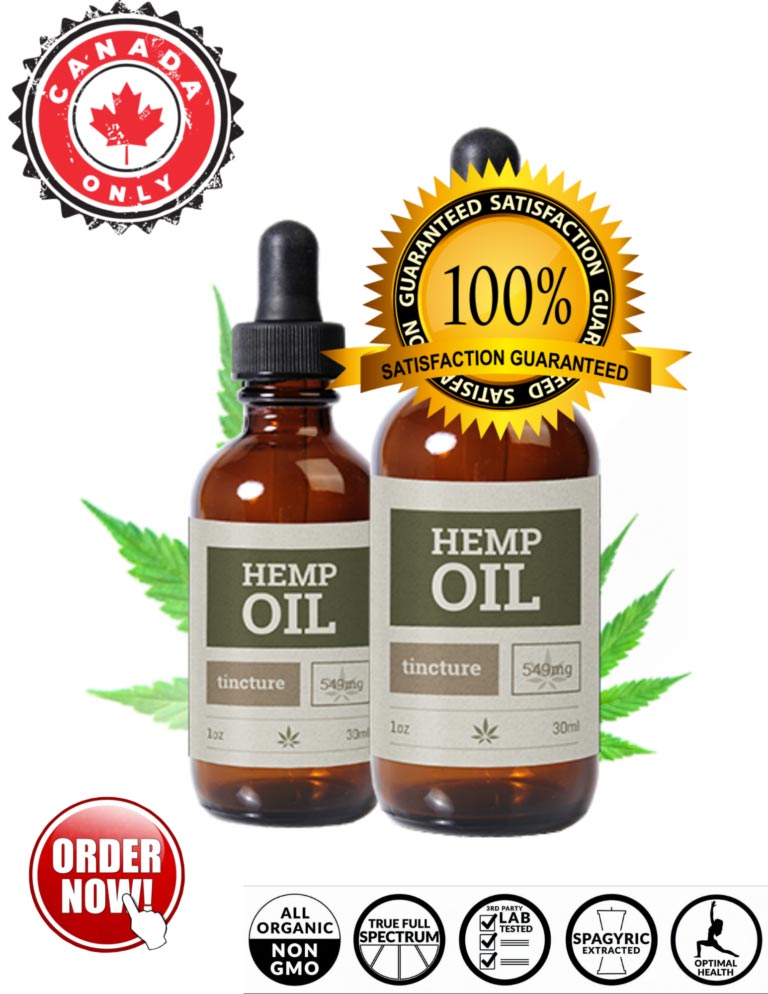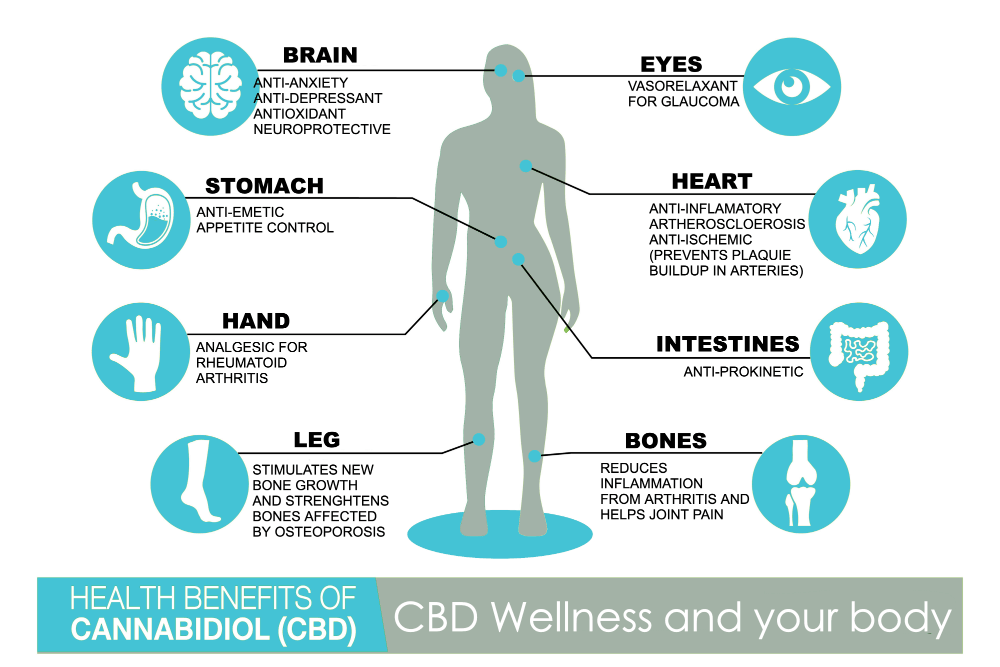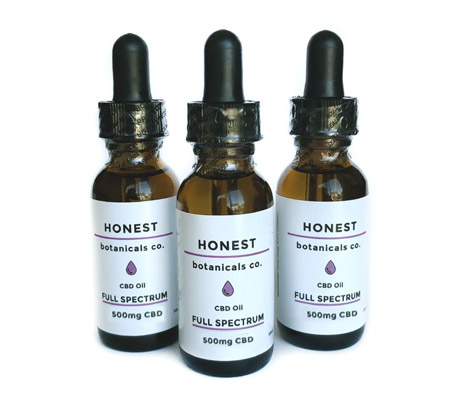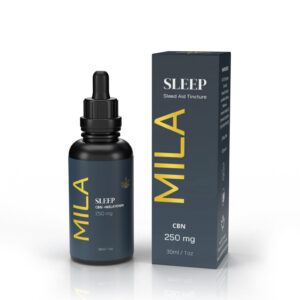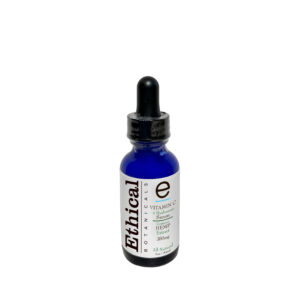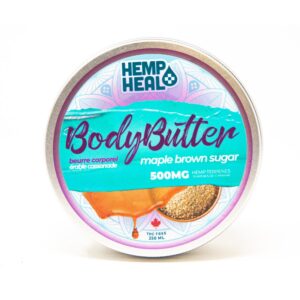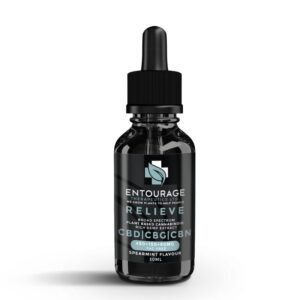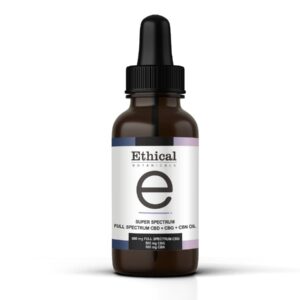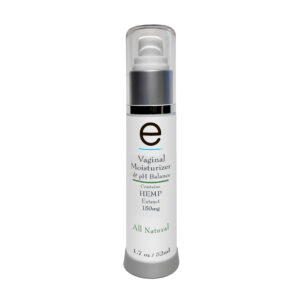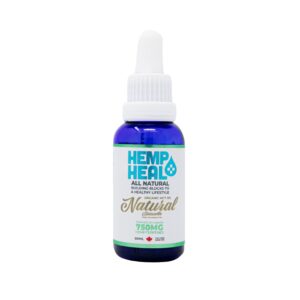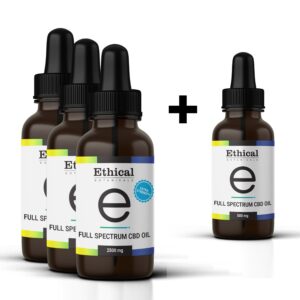What happened?
In 2015, Dr. Richard Thomson was a newly retired psychiatrist living life with his recently graduated sweetheart Lisa. Having just moved to a new city, they were launching into a new phase of life, full of hope and enthusiasm. But their hope soon turned to pain as Lisa began to suffer acute episodes of social anxiety. For years her anxiety had been manageable with medication, but the drugs began to take their toll. Lisa’s kidneys and liver were in rough shape. After losing her job, Lisa began to lose weight and Richard knew his life’s love was descending in a downward spiral. With pharmaceuticals no longer an option, Richard was running out of options. But after a massive outreach effort, he found CBD.
Why did he choose CBD? What is it?
Cannabidiol (CBD), is a non-psychoactive compound produced by hemp plants. CBD interacts powerfully with the human endocannabinoid system (ECS)–which regulates everything from pain, to mood to motivation. Unlike the THC from cannabis, CBD does not get you “high.” It is purely medicinal.
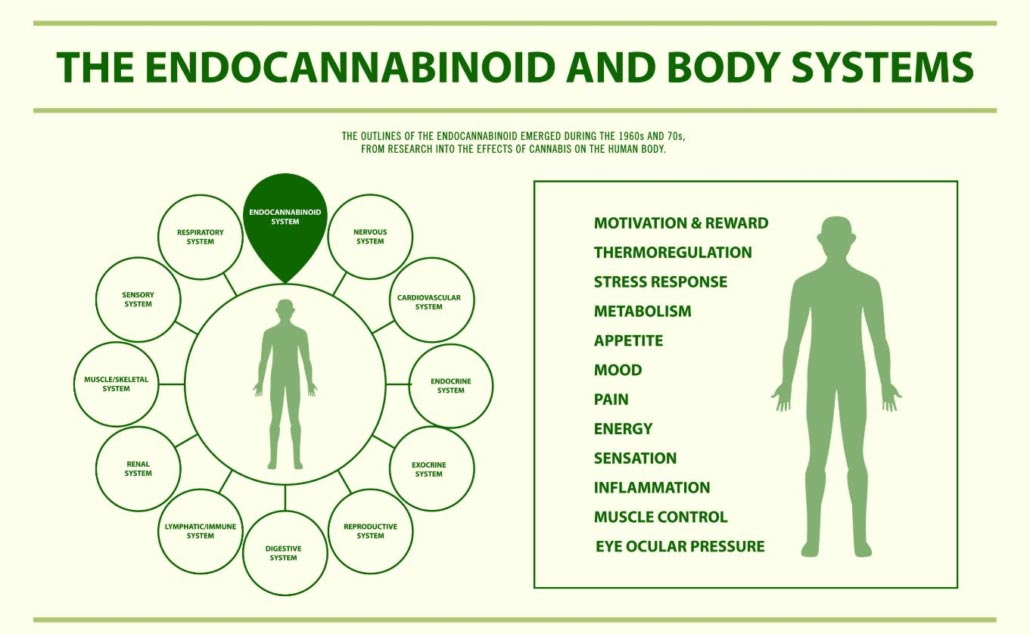
People have actually used CBD as medicine for over 4,000 years, but it’s only since the 1960’s and 70’s that we’ve studied it scientifically. Even then, government prohibition made study slow and difficult. Fortunately, CBD was legalized in 2018 in Canada (and the U.S. with 2018 Hemp Farming Act) and the number of scientific studies have increased dramatically since.
Millions of people are already using CBD Hemp oil on a daily basis. Some say it works better than prescription painkillers like Vicodin and Oxycontin.
According to leading endocannabinoid scientist Bradley E. Alger, (PhD, Harvard) “…Endocannabinoids are literally a bridge between body and mind,” which explains why CBD has such widespread effects. CBD’s reputation as a “miracle cure,” comes down to the fact that in interacts and regulates so many of our inner systems. The implications of this are nothing short of amazing.
What the science now tells us is that CBD has therapeutic value for a mind-blowing number of ailments. In fact, CBD is already clinically-proven to be therapeutic for:
- Pain
- Anxiety and stress
- Sleep disorders, insomnia
- Inflammation
- Acne, psoriasis, skin conditions
- Depression and mood disorders
- Cholesterol Profiles and Lowered Risk of Cardiovascular Disease
- Cancer
- Alzheimer’s
- Bone diseases, osteoporosis and osteoarthritis
- Diabetes and Obesity
This is what Richard was discovering as he was looking for an alternative treatment for his girlfriend of 4 years.
Richard damned himself for not foreseeing what would happen. They were both celebrating a big new move. Richard let himself get carried away with his optimism for the future and satisfaction with early retirement. He should have been paying more attention to Lisa. He was happy celebrating her big new job and treating her to weekend getaways, but he knew that in her new role as VP she would face a level of pressure she’d never dealt with before. Lisa was bright and personable, but her social anxiety made prominent roles difficult for her.
Lisa had been an entrepreneur throughout her academic career as a marketing major at the University of Western Ontario. She graduated with honors and it wasn’t long before she was partnering with a former employer on a new venture. Lisa was transitioning from being a web marketing whiz to VP of an internet marketing startup.
Lisa’s anxiety was rooted in childhood trauma from both physically abusive parents and brutal bullying during elementary school. Lisa managed her anxiety fairly well during university. The days of abuse were behind her. Still, confrontational situations, trust and the perception of belittlement continued to be issues. Lisa managed her anxiety with Klonopin, but took smaller than recommended doses.
That changed with the VP job though. The level of pressure to learn her role, build the platform and develop the business was a full order of magnitude greater than during her school days. There was much more at stake, and patience was a far rarer commodity. It wasn’t long before Lisa was having panic attacks before work in the morning, “I’m fucking up, I’m fucking up, they hate me!” she’d scream. Richard was able to use his psychiatry skills and his love for Lisa to calm her down. In the meantime, Lisa’s doctor recommended she increase her Klonopin dosage. That was the beginning of the end.
Lisa’s body did not respond well to the higher dosage. Her kidney and liver health began to deteriorate. She began to experience nausea, loss of appetite, fatigue, and diarrhea regularly and began to lose weight. Paranoid that the Klonopin was killing her, Lisa quit cold turkey. Four days later, Lisa was in the emergency ward getting treated for seizures—a tragically common effect of Klonopin withdrawal.
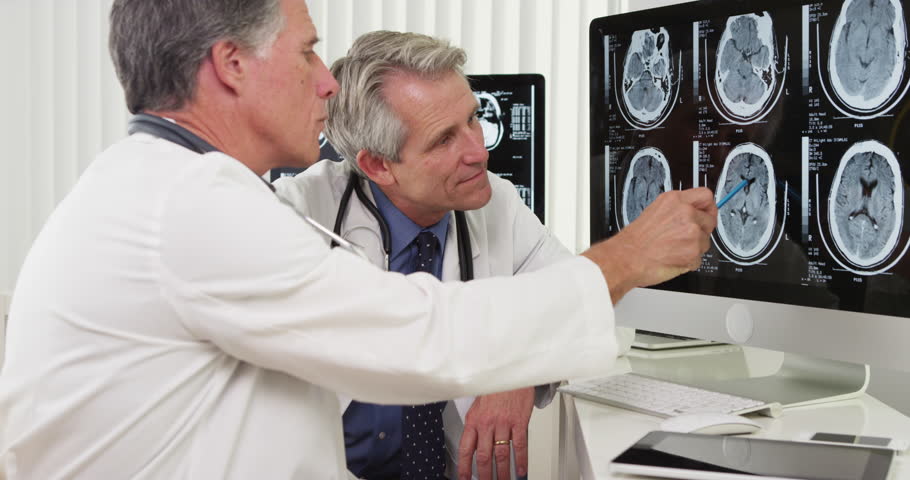 Richard was shattered. His mind raced. Lisa’s mental and physical health were in serious peril. Thankfully, Canada had legalized Cannabis. He’d heard more and more about CBD as his former colleagues raved about it. He scoured through his entire list of contacts, speaking to anyone who could give him any info about CBD.
Richard was shattered. His mind raced. Lisa’s mental and physical health were in serious peril. Thankfully, Canada had legalized Cannabis. He’d heard more and more about CBD as his former colleagues raved about it. He scoured through his entire list of contacts, speaking to anyone who could give him any info about CBD.
That’s when a friend from the Canadian Psychiatric Association reached out to recommend Dr. Shea Masterson, a Medical Doctor who specializes in CBD, Cannabis Medicine and Neurofeedback. She gave Richard the science, “CBD binds to a receptor called 5-HT1A. That’s the same one targeted by most anti-anxiety drugs. That’s the one we think plays the strongest role in anxiety disorders. You should try CBD. I have a long list of patients who have really benefited. Remember, CBD isn’t toxic, so Lisa’s liver and kidneys will be able to heal while she’s on it.”
Richard acted immediately. He purchased a high-potency full spectrum CBD and started Lisa on small 10mg doses. He followed Dr. Masterson’s advice and upped the dose gradually by 5mg every few days until they found Lisa’s optimal dose of 35mg per day. 10 weeks later Lisa was back at work, albeit as a marketing manager now instead of a VP, and telecommuted to the office Mondays and Fridays.
There were no more withdrawal symptoms. With the help of an occupational therapist and some positive psychology, pressure from the office diminished significantly. Lisa still felt social anxiety at times, but it felt akin to pre-presentation butterflies instead of crippling panic attacks. Richard was overjoyed.
The product Richard chose? Natural Botanicals Lab-Tested Full Spectrum CBD
CBD Has Been Called “Nature’s Oxycontin“
But the truth of the matter is, it might even be better…
CBD has earned its reputation as “nature’s Oxycontin” for good reason. Not only is it effective in quickly reducing pain and anxiety, it helps the body defend itself and heal by fighting inflammation and boosting the immune system. Best of all, CBD is also completely non-addictive and CBD has no side-effects.
One study showed CBD reduced social anxiety in a way comparable to ipsapirone and diazepam (valium). Where CBD is decidedly superior is that CBD has no side-effects, unlike ipsapirone which can cause headache, dizziness, nervousness, paresthesia, and gastrointestinal upset.
This is why so many people are turning from pharmaceuticals to CBD. In study after study, patients being administered CBD report it being as effective as their prescription medication. 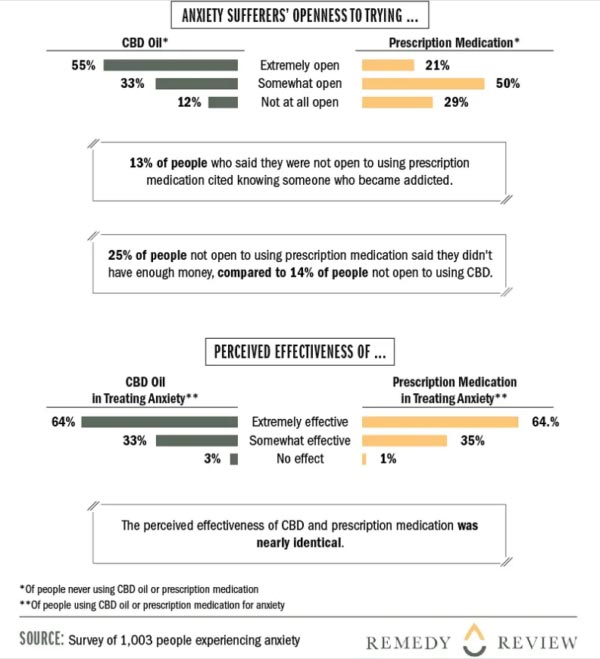 Although Oxycontin, Zoloft, Xanax, Prozac, and Klonopin can beneficial, they are expensive and cause side effects like insomnia, headaches, nausea, anxiety, weakness/lack of energy, impotence, depression and disorientation. In some cases the side effects can be truly frightening.
Although Oxycontin, Zoloft, Xanax, Prozac, and Klonopin can beneficial, they are expensive and cause side effects like insomnia, headaches, nausea, anxiety, weakness/lack of energy, impotence, depression and disorientation. In some cases the side effects can be truly frightening.
Take, for example, Klonopin. The American Addiction Centers warn that users must quit Klonopin gradually. Quitting the drug “cold turkey’ can cause powerful withdrawal symptoms including “potentially fatal seizures or a coma.” Who would want to go through that?
How does CBD fight anxiety?
We know that chronically high levels of stress hormones—cortisol in particular—can cause damage throughout the body with consequences that include:
- Depression
- Heart disease
- Digestive problems
- Weakened immune system
- Fatigue
- Weight gain
- Headaches
- Muscular tension
- Endocannabinoid imbalance
What the science tells us is that CBD counters anxiety by stimulating neurotransmitter systems and neural regeneration.
We all know how seratonin affects mood. At least 14 different receptors respond to seratonin but CBD specifically binds to the receptor 5-HT1A, the one thought to play the strongest role in anxiety disorders. It’s the very same receptor targeted by anti-anxiety drugs like buspirone.
CBD also acts to restore balance in the endocannabinoid system by preventing overstimulation of CB1 receptors and boosting production of our own endocannabinoids. Experiments conducted on rodents showed CBD relieved OCD and other anxiety by influencing the brain’s processing of extinction learning—the process whereby our brains learn to stop feeling fear or stress in response to certain events.
CBD also protects us from brain damage caused by chronic stress. Studies have shown that CBD promotes neural regeneration. CBD’s role in reducing anxiety in chronically-stressed mice was shown to come from CBD’s power to stimulate the growth of new neurons.
Clinical research shows CBD is effective for treating anxiety disorders
A double-blind study from 2019 on 37 Japanese teenagers afflicted with social anxiety disorder (SAD) demonstrated that CBD provided relief comparable to Paroxetine, a drug commonly prescribed for SAD.
Not only that, but some of the patients experienced additional benefits too. Of the seventeen teenagers in the study who were given 300 mg
of CBD oil daily for four weeks, nine declared they’d decided to seek treatment. It’s a significant breakthrough given that teenagers with SAD are unlikely to seek help because they fear being mocked for seeing a therapist, and fear interacting with therapists too.
In a 2019 retrospective case study at a mental health clinic in Fort Collins, Colorado, patients reporting anxiety were given 25 mg of CBD daily in addition to treatment.
After the first month, 79.2% of patients reported an improvement in anxiety. After the second month, 78.1% reported a further improvement compared with the previous month.
Already, there’s a growing body of evidence that CBD is good for:
- Generalized anxiety disorder
- depression,
- stress,
- ADHD/ADD
- Panic disorder
- Social anxiety disorder
- Obsessive–compulsive disorder (OCD)
- Post-traumatic stress disorder (PTSD)
CBD has also been proven
- To be highly beneficial in the treatment of seizures, neurological conditions such as MS and cerebral palsy, and anxiety disorders
- Studies have found that CBD can relieve nausea and vomiting, making it a great digestive aid
- To be an effective sleep aid that can help with insomnia, nightmares, restless leg as well as symptoms of Parkinson’s disease and Huntington’s disease.
- It can help fight tumors and cancer cells because it’s a very powerful antioxidant
- CBD can help relieve anxiety and depression, calm and protect the nervous system
- It can promote relaxation and deep sleep, help reduce stress, help relieve insomnia
- CBD is a natural anti-inflammatory which helps reduce swelling and also can help reduce muscle and joint pain
CBD has no negative effects. You can’t overdose, you won’t get addicted, there are no side effects. These qualities are a part of what make a natural remedy like CBD so appealing.
“You Want to Be Careful About What
You Put to Your Body”
As is the case with all health supplements, it’s important to consider:
- The Source Quality of the CBD (i.e. where it comes from)
- The Extraction Process of the CBD (how the CBD oil is prepared)
- The Handling + Storage of the CBD
- The Manufacturing Methods + Concern for Purity
It is recommended you find a CBD that’s all-natural, CO2-extracted, triple-tested for purity and sourced from organic hemp. You can find just such CBD here:
Unfortunately, a large number of supplements on the market today are ineffective and a complete waste of money because they simply aren’t made from quality ingredients or extracted using cheap, inferior methods. When looking for quality CBD products make sure they are lab-tested.
Can CBD oil treat my anxiety and pain?
Though more research needs to be done, current studies and science indicate CBD has therapeutic value in treating anxiety and pain. At the end of the day, each person reacts to medication differently. The best way to find out if CBD works for you is to try it yourself. And why not? Pure CBD is absolutely safe and legal in Canada. You can skip the long wait for wallet-draining doctor’s appointments and the frightfully addictive pills and opioids – Try CBD Hemp oil instead.
We’ve scoured the web looking for the highest quality products and best prices. Today only, we can offer lab-tested CBD oil made from the best organic ingredients the West Coast of Canada has to offer. Try CBD Hemp oil Today at a special price. You can take advantage of this limited time offer and enjoy the benefits of Natural Botanicals CBD just like thousands of others. This offer is for Canadian residents only. ACT NOW!! Stocks are limited.
References:
https://www.psychologytoday.com/ca/basics/shyness
https://www.youtube.com/user/DrDaniMD
https://www.frontiersin.org/articles/10.3389/fpsyg.2019.02466/full
https://www.ncbi.nlm.nih.gov/pmc/articles/PMC6043845/
https://www.ncbi.nlm.nih.gov/pmc/articles/PMC4851925/
https://www.ncbi.nlm.nih.gov/pmc/articles/PMC6326553/
https://www.psychologytoday.com/ca/blog/inner-source/201901/cbd-oil-mental-health-should-you-take-it-too
Shop CBD Products
-
Rated 5.00 out of 5$75.00 Select options This product has multiple variants. The options may be chosen on the product page
-
Rated 5.00 out of 5$76.99 – $698.99 Select options This product has multiple variants. The options may be chosen on the product page
Disclaimer
This information does not constitute medical advice and it should not be relied upon as such. Consult with your doctor before modifying your regular medical regime. Our websites content is provided as a service; all content is solely for informational purpose only and is intended to facilitate communication between you and your healthcare provider. We do not represent in any manner whatsoever that the content of our website contains the opinions of a healthcare professional. Reviews or testimonials may be fictionalized. This product is not intended to diagnose, treat, cure, or prevent any disease. Results may vary / results may not be typical / reviews or testimonials may be fictionalized. This information does not constitute medical advice and it should not be relied upon as such. Consult with your doctor before modifying your regular medical regime.

